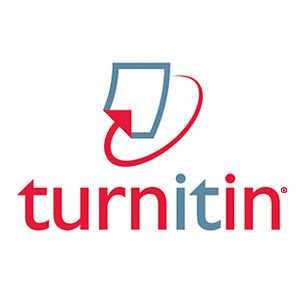PENGARUH DISIPLIN KERJA DAN MOTIVASI TERHADAP KINERJA PEGAWAI DI PUSKESMAS MARANCAR UDIK KABUPATEN TAPANULI SELATAN
Abstract
ABSTRAK
Penelitian ini berkaitan dengan bidang ilmu manajemen sumber daya manusia dan ilmu sosial.Sehubungan dengan hal itu pendekatan yang dilakukan adalah teori-teori yang berkaitan dengan teori disiplin kerja, motivasi, dan kinerja pegawai/karyawan, dan beberapa teori yang diperlukan di dalam penelitian ini.
Penelitian ini merupakan penelitian kuantitatif.Sumber data yang digunakan adalah data primer.Teknik pengumpulan data yang digunakan adlah angket dan wawancara dengan jumlah sampel sebanyak 45 responden.Analisis yang digunakan adalah uji validitas, uji realibilitas, uji normalitas, uji linearitas, uji asumsi klasik, uji regresi linear berganda, uji koefisien determinasi R2, uji parsial (uji t) dan uji koefisien regresi simultan (uji F).
Berdasalkan hasil analisis dengan menggunakan bantuan program SPSS Versi 23 maka diperoleh hasil pengukuran regresi dengan persamaan Y = 9.429 + 0,750 Disiplin + 0,282 Motivasi dengan data Rsquare sebesar 0,985, berarti 98,5% variabel disiplin dan motivasi mampu menerangkan variabel kinerja pegawai pada Kantor Puskesmas Marancar Udik Kabupaten Tapanuli Selatan, sedangkan sisanya sebesar 1,5%, dipengaruhi oleh variabel lain. Hasil penelitian secara parsial (uji t) menyatakan bahwa, disiplin memiliki thitung>ttabel(5.332 > 2,018), artinya disiplin kerja memiliki pengaruh signifikansi terhadap kinerja pegawai.Motivasi memiliki thitung>ttabel (12,043>2,018), artinya motivasi memiliki pengaruh signifikansi terhadap kinerja pegawai.Hasil penelitian secara Simultan (uji F) menyatakan bahwa disiplin kerja dan motivasi memiliki Fhitung> FtabeL (132,188 >0,282).Artinya Ho ditolak, maka dapat disimpulkan bahwa disiplin kerja dan motivasi secara besama-sama berpengaruh terhadap kinerja pegawai.
Kata Kunci: Disiplin kerja, Motivasi dan Kinerja pegawai.
ABSTRACT
This research relates to the fields of human resource management and social sciences. In this connection the approach taken is theories related to the theory of work discipline, motivation, and employee / employee performance, and several theories needed in this study.
This research is a quantitative research. The data sources used are primary data. The data collection techniques used are questionnaires and interviews with a total sample of 45 respondents. The analysis used is validity test, reliability test, normality test, linearity test, classic assumption test, multiple linear regression test, test coefficient of determination R2, partial test (t test) and simultaneous regression coefficient test (F test).
Based on the results of the analysis using the SPSS Version 23 program, the regression measurement results obtained with the equation Y = 9,429 + 0,750 Discipline + 0,282 Motivation with Rsquare data of 0,985, meaning 98.5% discipline and motivation variables were able to explain employee performance variables at Marancar Public Health Office Udik, South Tapanuli Regency, while the remaining 1.5%, is influenced by other variables. The results of the study partially (t test) states that, discipline has thitung> t table (5,332> 2,018), meaning that work discipline has a significant effect on employee performance. Motivation has tcount> t table (12,043> 2,018), meaning motivation has a significant effect on performance Simultaneous research results (F test) state that work discipline and motivation have Fcount> FtabeL (132,188> 0,282). The meaning of Ho is rejected, it can be concluded that work discipline and motivation jointly influence employee performance.
Keywords: Work discipline, motivation and employee performance.
Keywords
Full Text:
PDFDOI: https://doi.org/10.24952/masharif.v5i1.1404
Refbacks
- There are currently no refbacks.
Copyright (c) 2019 JURNAL-ALMASHARIF: Jurnal Ilmu Ekonomi dan Keislaman

This work is licensed under a Creative Commons Attribution-ShareAlike 4.0 International License.

Plagiarism Checked by:





